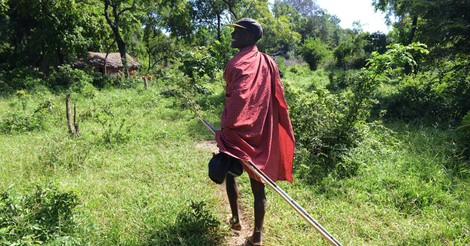Your podcast discovery platform
Curious minds select the most fascinating podcasts from around the world. Discover hand-piqd audio recommendations on your favorite topics.

piqer for: Climate and Environment
Pamela works as a Press & Communications Manager for an international NGO (IWGIA) defending indigenous peoples' rights. She holds an Erasmus Mundus MA in Journalism, Media & Globalisation from Hamburg and Aarhus University and an MA in Political Science from the University of Buenos Aires. She will be putting the eye on international media coverage of indigenous communities and their demands.
Tanzania: World Bank Under Fire For Giving Green Light To Evictions
In Tanzania indigenous peoples are directly not recognised. Now, the fragility of their land rights is cornered by the World Bank. The global investor is showing alarming willingness to allow exceptions to comply with indigenous safeguard policies in the country.
On March 10, the World Bank approved an exemption to the Indigenous Peoples Policy for SAGCOT, which is a large-scale investment project on an agricultural corridor. The project is expected to mobilise $2.1 billion in new private sector agribusiness investments, backed by $1.3 billion in public sector facilitating investments in infrastructure and related public goods.
The World Bank giving green light to evict indigenous communities?
The World Bank has come under fire (great investigative journalism project!) in recent years for failing to follow its own rules for protecting vulnerable populations affected by the development projects that it finances.
What is at stake:
“At issue is a $70 million World Bank loan for the Southern Agricultural Growth Corridor of Tanzania, or SAGCOT, a Tanzanian government initiative designed to encourage foreign investment in commercial agriculture. Some of the fertile agricultural lands that SAGCOT is transferring to investors are being cleared by evictions of cattle herders in the Barabaig, Maasai and other indigenous communities.”
While the Tanzanian government plays its cards with the backup of this global investor, indigenous peoples are targeted as invaders on their own lands.
Livestock herders say the SAGCOT system has prompted authorities, mostly local and regional district councils, to evict them from their villages and grazing lands so they can offer them to farmers working with wealthy investors.
These decisions put at risk not only these peoples' traditional way of living, their culture and well-being, but what is most basic: their survival.
Get a glimpse of what the 2030 Agenda for Sustainable Development looks like in Africa by reading this piece.
